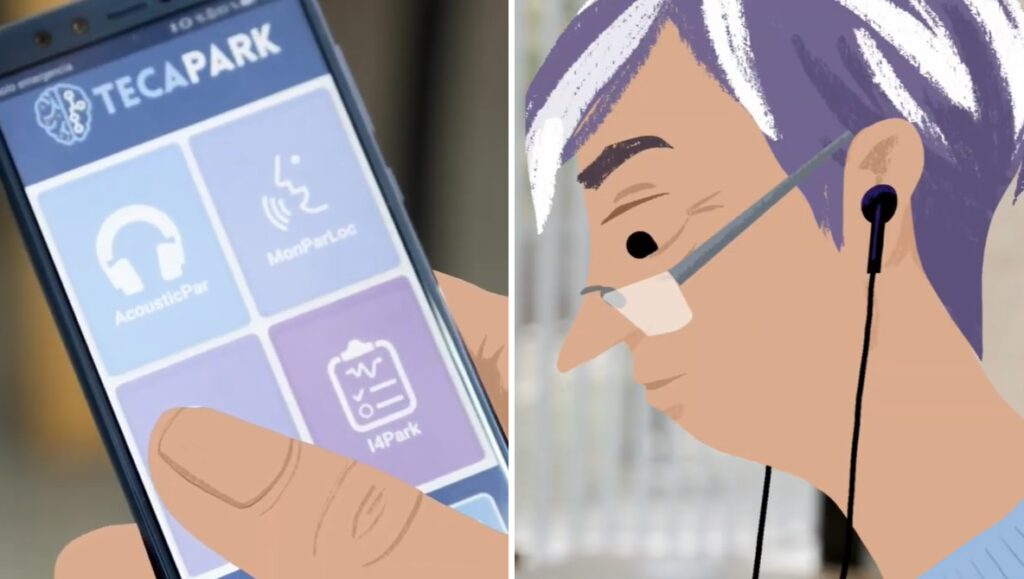The School of Engineering at the University of Minho (EEUM) wants to delay the effects of Parkinson's disease through acoustic stimuli and monitoring, using an mp3 player and a simple SmartWatch on the wrist. The objective is to assist in the daily processes of cognitive and motor rehabilitation of those patients and in their monitoring by caregivers and physicians.
The scientific project, designated "TECA-PARK– Acoustic training technologies for the care, monitoring and rehabilitation of patients with Parkinson's disease”, has a partnership with the Polytechnic Universities of Madrid and Oviedo, in Spain, and the support of Hospital Senhora da Oliveira and Lar de Santa Estefânia, both in Guimaraes.
It is funded by the International Center on Aging, linked to the INTERREG cross-border program and the European Regional Development Fund.
The research in Portugal is coordinated by Pedro Arezes and Nélson Costa, from Centro Algoritmi, University of Minho (UMinho).
Sound is one of the main ways to stimulate the human being and, in neurodegenerative diseases, music therapy helps in the mood and unlocking movements.
“TECA-PARK” innovates by resorting to objects that are frequently used in the patient's daily life. It gives you a stimulation kit (mp3 player with earphones, to listen to ten minutes of stimulation twice a day) and also a monitoring kit (smart watch, mobile phone or tablets, to perform biweekly exercises).
These supports collect the generated information and send it to servers, where artificial intelligence algorithms relate the data to the evolution of the patient's symptoms and any improvements resulting from these acoustic stimuli.
At UMinho, a tool for monitoring movement was also created, which is decisive for understanding the effect of medicines on the autonomy of patients; that is, it brings more data for your clinical evaluation.
Experiences in the Iberian Peninsula and the USA
In the first phase of the project, the developed technologies were integrated into a cloud platform that uses pattern recognition techniques and big data. The support was validated with the associations Parkinson Madrid, Jovellanos, Aparkam and with the AgeLab laboratory of the Massachusetts Institute of Technology (MIT), in the USA.
In the first quarter of this year, weekly sessions were held with volunteer patients from the hospital and nursing home in Guimarães, guided by Nelson Costa. But the pandemic suspended work and sessions were scarce to find out whether the acoustic stimulus produces effects that delay the evolution of the pathology.
However, previous results confirmed that the tool is useful to follow the evolution of the disease, says that researcher from the Ergonomics & Human Factors Group at Centro Algoritmi and professor at the Department of Production and Systems at EEUM.
The official believes that the availability of accurate information for clinical and rehabilitation services can improve response times in the adaptation of pharmacological and rehabilitation treatment protocols, contributing to the care and assistance of Parkinson's patients.
Scientists want to continue to improve the lives of Parkinson's patients through inclusive, non-invasive and low-cost technologies that encourage patient stimulation, monitoring and follow-up, while facilitating their interaction with the caregiver and the assistant clinician.
“We will continue the project as soon as possible and we are preparing new applications for funding”, he explains. The study brings together engineers, neurologists, neuroscientists, and rehabilitation and care technicians.
The cross-border region, in which "TECA-PARK" is located, has a population that tends to be aging, dispersed in rural areas and with limited access to care at a neuro-degenerative level, a type of pathology in which technology can have a very positive impact in patients.
AuthorCommunication, Information and Image Office – University of Minho
Science in the Regional Press – Ciência Viva



















Comments